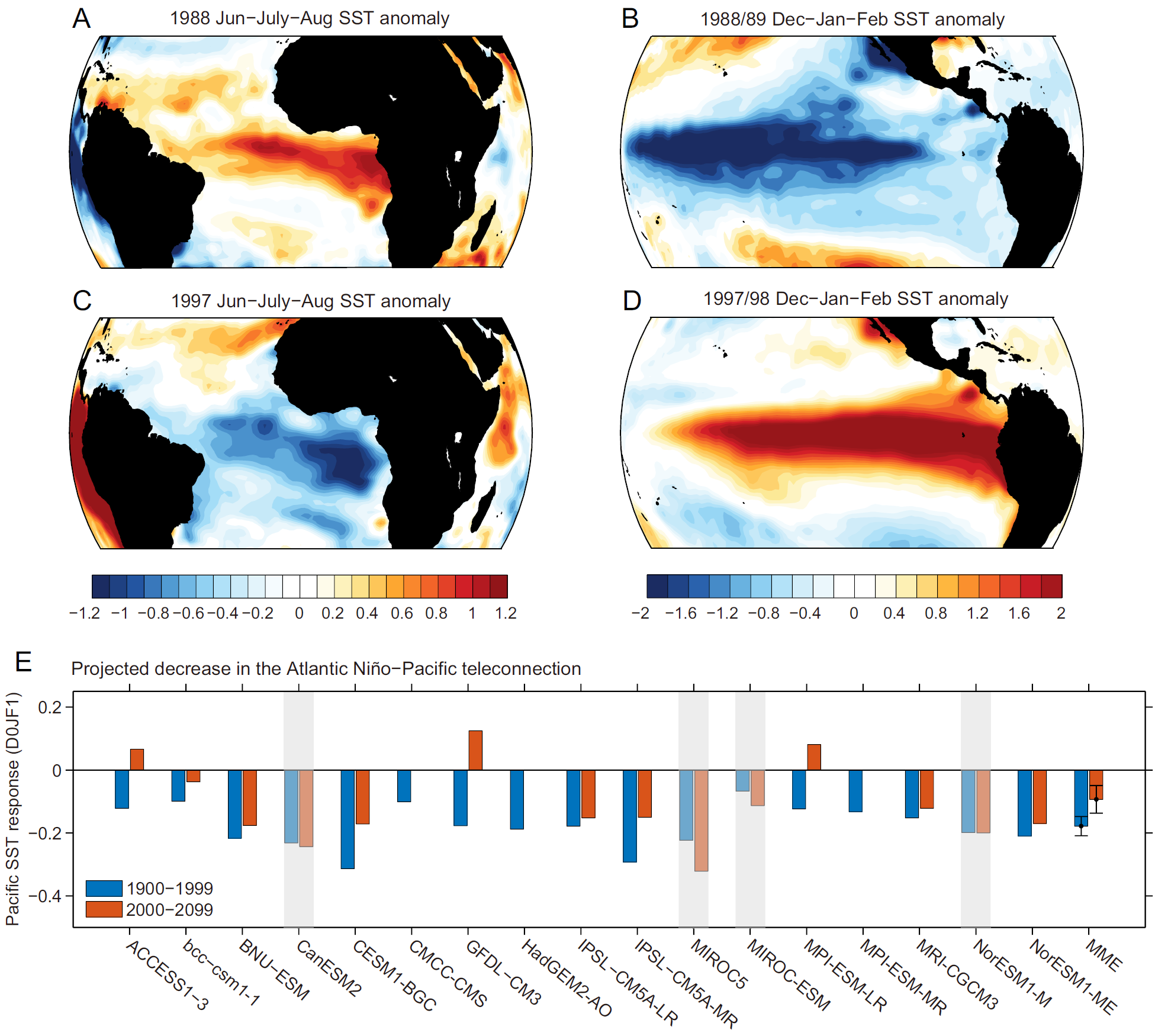New Research Progress on Atlantic Nino-Pacific Connection
Sea Surface Temperature (SST) variability in the equatorial eastern Atlantic, referred to as Atlantic Zonal Mode, or Atlantic Nino at its warm phase and Atlantic Nino at cold phase, is the dominant interannual variability in the equatorial Atlantic. An Atlantic Nino peaks in boreal summer and favors development of a Pacific La Nina in the following winter, and vice versa for Atlantic Nina, providing a memory source for El Nino-Southern Oscillation (ENSO) predictability. The 1982, 1997 and 2015 extreme El Nino events, strongest since 1900, were all preceded by an Atlantic Nina. The strongest La Nina over the past 117 years, 1988 and 1998, which caused billions in damage and loss of tens of thousands of lives, were both preceded by an Atlantic Nino. Therefore, how such Atlantic Nino-Pacific connection may change under greenhouse warming is not only an important scientific issue but also of practical utilities.
Here, we show that greenhouse warming leads to a weakened influence from the Atlantic Nino/Nina on the Pacific ENSO. In response to anomalous equatorial Atlantic heating, ascending over the equatorial Atlantic is weaker due to an increased tropospheric stability in the mean climate, resulting in a weaker impact on the Pacific Ocean. Thus, as greenhouse warming continues, Pacific ENSO is projected to be less affected by the Atlantic Nino/Nina and more challenging to predict.

Figure. (A) 1988 Atlantic Nino, (B) 1988/89 extreme La Nina, (C) 1997 Atlantic Nina, (D) 1997/98 extreme El Nino, (E) Projected decrease in the Atlantic Nino-Pacific connection over the present-day (1900-1999) and future (2000-2099) 100-year periods in the 17 selected CMIP5 models.
Citation: F. Jia, W. Cai, L. Wu, B. Gan, G. Wang, F. Kucharski, P. Chang, N. Keenlyside, Weakening Atlantic Nino-Pacific connection under greenhouse warming. Sci. Adv. 5, eaax4111 (2019).
“Weakening Atlantic Nino-Pacific connection under greenhouse warming”, published on Science Advances on August 21.
|
|

Address: 7 Nanhai Road, Qingdao, Shandong 266071, China
Tel: 86-532-82898902 Fax: 86-532-82898612 E-mail: iocas@qdio.ac.cn


